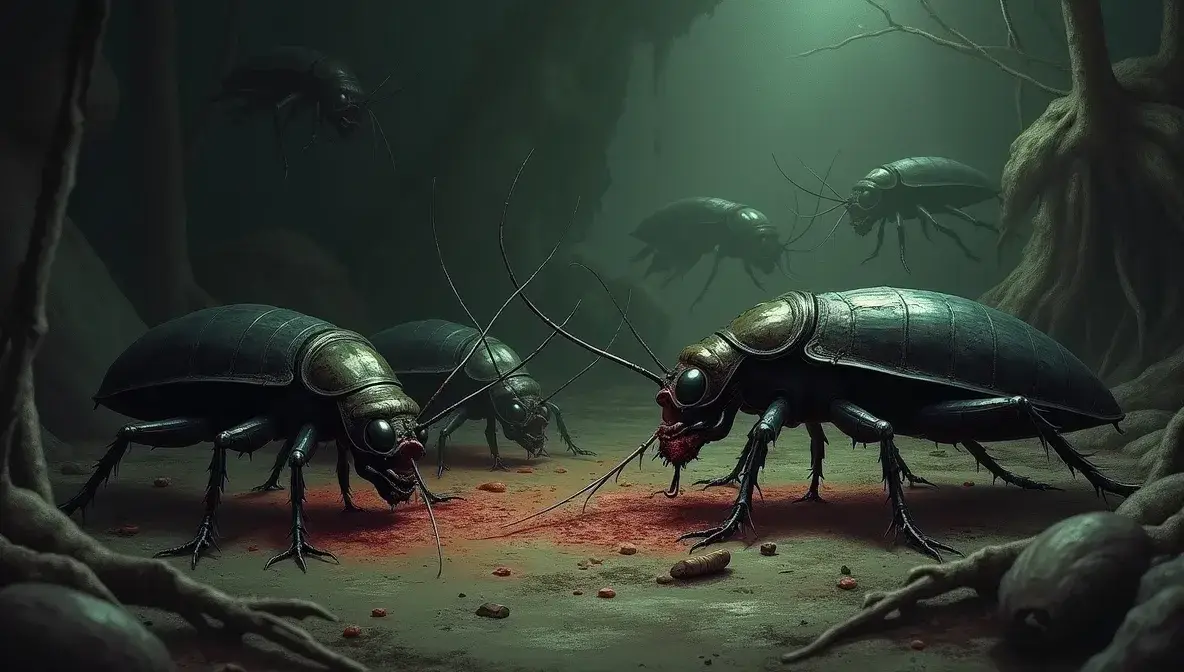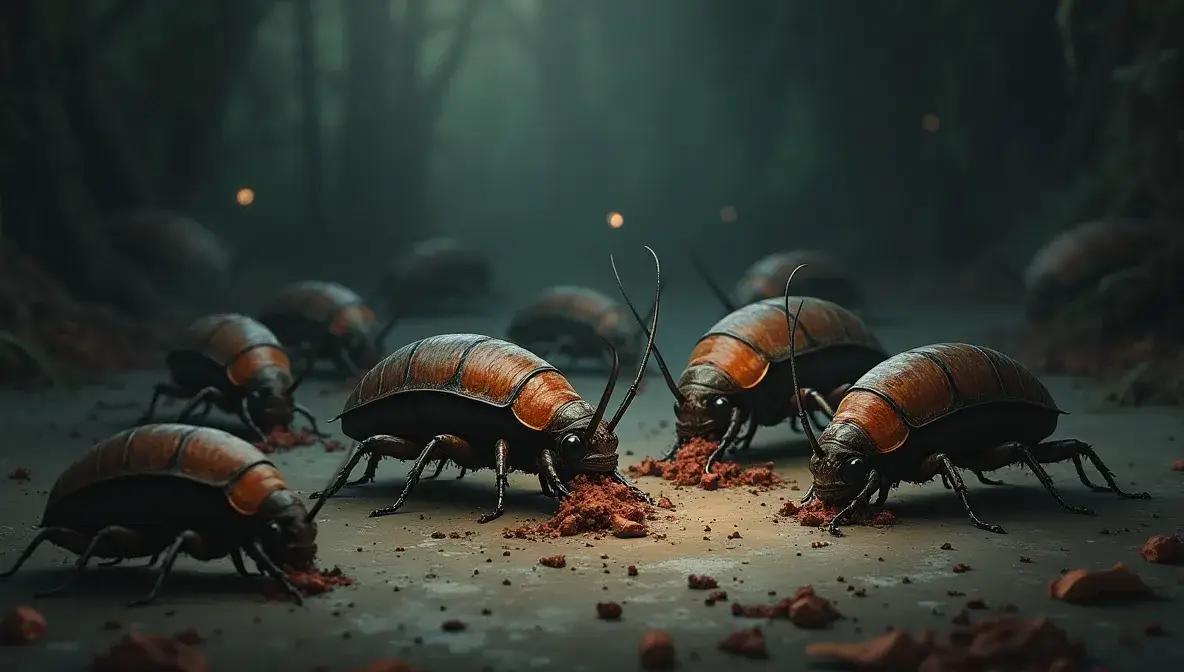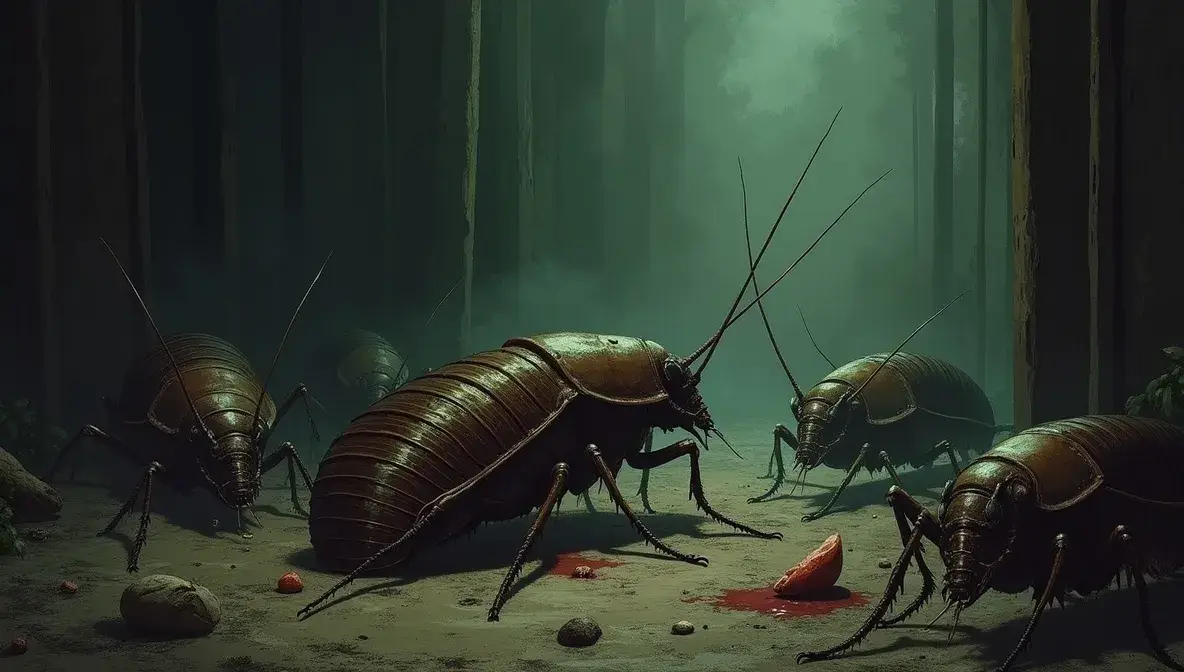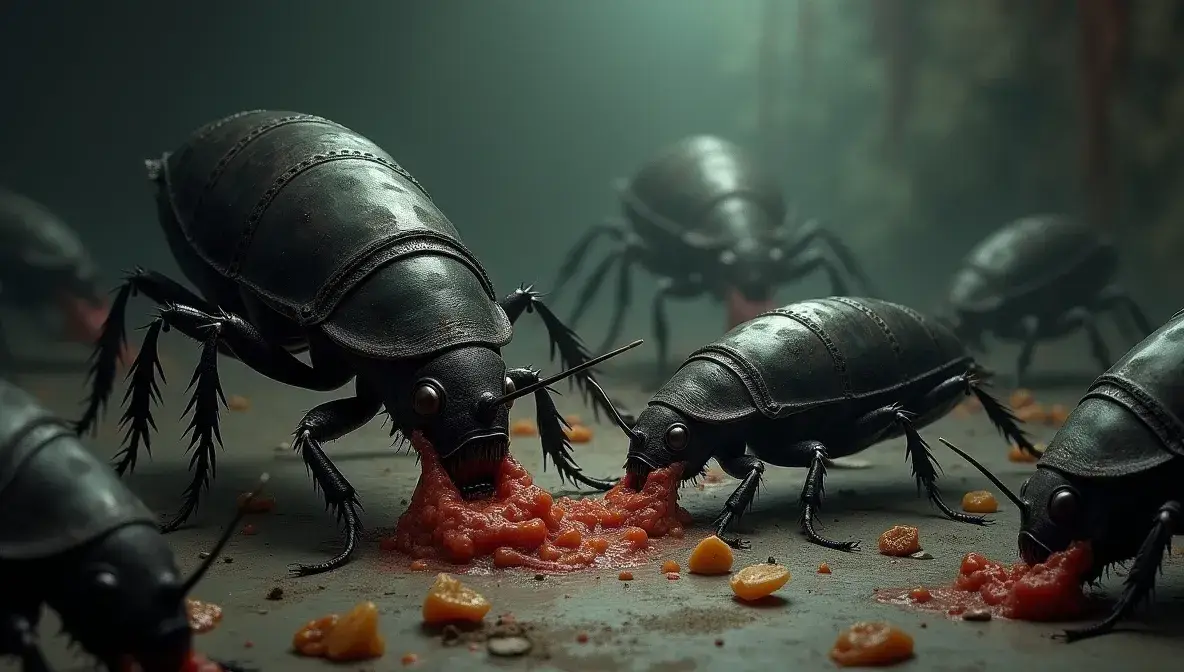Have you ever wondered, do Dubia roaches eat each other? This is a common concern for reptile enthusiasts and insect keepers who rely on Dubia roaches as feeders or breeders. Known for their hardiness and ease of care, Dubia roaches are among the most popular feeder insects for reptiles, amphibians, and other exotic pets. However, ensuring their well-being in captivity requires a good understanding of their behavior, including whether they might resort to cannibalism.
In this article, we’ll explore whether Dubia roaches eat each other, why this might happen, and how to prevent it. We’ll also discuss practical tips to keep your roaches healthy and thriving, so you can maintain a sustainable, self-sufficient colony without losing roaches unnecessarily.
Understanding Dubia Roach Behavior
Dubia roaches (Blaptica dubia) are tropical insects native to Central and South America. They are non-climbing, non-flying roaches that thrive in warm, humid environments. In captivity, they’re prized for their nutritional value, long lifespan, and relatively low-maintenance care.
As scavengers, Dubia roaches feed on a wide variety of organic matter, including fruits, vegetables, and grains. But what about their interactions with each other? Are they peaceful, or do they sometimes turn on their own kind?
Do Dubia Roaches Eat Each Other?

The short answer is yes, Dubia roaches can eat each other, but this behavior is uncommon under ideal conditions. Cannibalism among Dubia roaches typically occurs when their basic needs aren’t met. Let’s break down the main reasons behind this behavior:
Lack of Food
Dubia roaches are omnivorous scavengers, meaning they’ll eat almost anything they can find. If their food supply runs out or becomes insufficient, they may begin to see each other as a source of protein.
How to Prevent It:
- Provide a consistent supply of food, including high-quality fruits, vegetables, and commercial roach chow.
- Avoid overfeeding, as spoiled food can lead to mold and attract pests, which could harm your colony.
- Rotate food options to ensure a balanced diet.
Dehydration
Water is critical for Dubia roaches. Without access to adequate moisture, they may resort to cannibalism to extract fluids from other roaches.
How to Prevent It:
- Offer fresh fruits and vegetables with high water content (e.g., cucumbers, oranges, or carrots).
- Use water crystals or a shallow dish of water with a sponge to prevent drowning.
Overcrowding
Overcrowding is a common issue in Dubia roach colonies, especially as populations grow rapidly. When space is limited, competition for resources like food, water, and hiding spots increases, leading to stress and aggression.
How to Prevent It:
- Maintain a spacious enclosure with plenty of egg crates or cardboard for hiding and climbing.
- Monitor your colony’s population and separate roaches into additional bins if necessary.
Poor Nutrition
If your roaches are not receiving sufficient nutrients in their diet, they may start eating weaker members of the colony to obtain essential proteins and fats.
How to Prevent It:
- Provide a nutritionally balanced diet that includes a mix of fresh produce, grains, and protein sources.
- Supplement their food with protein powders or fish flakes to meet their dietary needs.
Injured or Dead Roaches
Dubia roaches are opportunistic feeders. If a roach is injured or dies, others in the colony may consume it. While this might seem alarming, it’s a natural behavior that helps keep the environment clean.
How to Manage It:
- Regularly inspect your colony for injured or dead roaches and remove them promptly.
- Ensure that your enclosure is free of sharp edges or hazards that could harm your roaches.
Is Cannibalism a Sign of Colony Failure?

Cannibalism in Dubia roach colonies isn’t always a sign of failure, but it does indicate that something in their environment needs adjustment. Addressing the root causes—such as insufficient food, water, or space—can help minimize this behavior and ensure the long-term health of your colony.
Tips for Maintaining a Healthy Dubia Roach Colony
Whether you’re raising Dubia roaches as feeders or simply as a hobby, keeping them healthy is essential. Here are some actionable tips to maintain a thriving colony:
Provide the Right Environment
- Temperature: Keep the enclosure between 85–95°F for optimal breeding and activity. Use a heat mat or ceramic heat bulb if necessary.
- Humidity: Maintain humidity levels around 40–60%. Use a hygrometer to monitor conditions and mist the enclosure lightly if needed.
- Ventilation: Ensure proper airflow to prevent mold and reduce ammonia buildup.
Offer a Balanced Diet
A healthy diet is crucial for preventing cannibalism and ensuring your roaches provide optimal nutrition for your pets. Focus on:
- Fruits and vegetables like apples, carrots, and squash.
- Grains such as oats, bran, or whole wheat bread.
- Protein supplements like dog food, fish flakes, or powdered roach chow.
Monitor Population Growth
Dubia roaches can reproduce quickly, with females giving birth to up to 40 nymphs every month. To avoid overcrowding:
- Separate adults, nymphs, and breeders into different bins.
- Use multiple enclosures to expand your colony.

Clean the Enclosure Regularly
- Remove uneaten food daily to prevent mold and bacteria.
- Replace substrate or paper liners every few weeks.
- Wash the enclosure with warm, soapy water and dry it thoroughly before refilling.
Observe Colony Behavior
Frequent observation can help you identify potential issues early. Watch for signs like:
- Unusual aggression or cannibalism.
- Injured or dead roaches accumulating in the enclosure.
- Poor breeding rates or stunted growth.
Common Misconceptions About Dubia Roaches
Are Dubia Roaches Aggressive?
No, Dubia roaches are generally docile and non-aggressive. Cannibalism is not a sign of inherent hostility but rather a response to environmental stressors.
Do Dubia Roaches Need Protein?
Yes, protein is an essential part of their diet. However, it should be provided through proper food sources rather than relying on cannibalism.
Final Thoughts
So, do Dubia roaches eat each other? Yes, but only under specific conditions like food scarcity, dehydration, overcrowding, or poor nutrition. By understanding these triggers and taking proactive steps to meet their needs, you can minimize cannibalism and maintain a healthy, productive colony.
Whether you’re breeding Dubia roaches as feeders or simply exploring their fascinating behavior, this knowledge will help you create the best possible environment for them.
Call to Action
Have you experienced cannibalism in your Dubia roach colony? Share your tips and tricks in the comments below! And if you’re looking for more guides on roach care or reptile feeding, check out our other articles to become an expert caretaker.
This blog post is designed to help you make informed decisions about Dubia roach care while addressing a common concern for insect keepers. With the right approach, you can ensure a thriving colony and a reliable food source for your pets.
Explore our tips on housing and maintaining Dubia roaches Drguidez.

Mark Manson is an expert blogger specializing in Dubia Roaches. He shares practical care tips, breeding insights, and feeding advice to help enthusiasts and reptile owners thrive.

